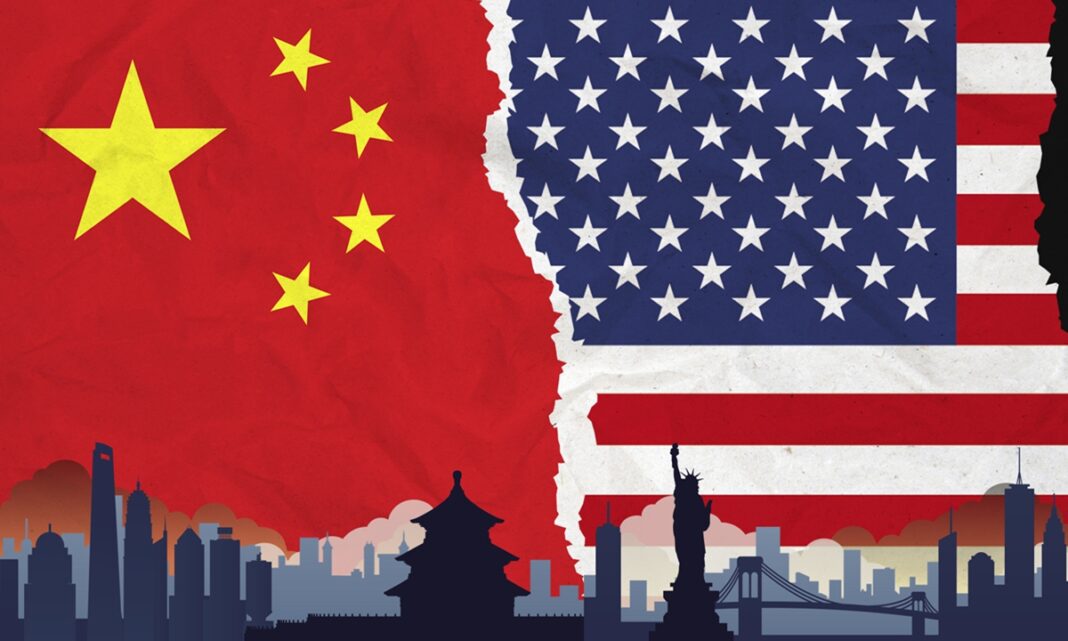The United States Department of Justice has apprehended two Chinese nationals suspected of conspiring to export US technology to bolster China’s military capabilities, according to media reports citing the US Department of Justice.
As per a press release by the US Department of Justice, Han Li (44) and Lin Chen (64) stand charged with multiple counts, including conspiracy to violate the International Emergency Economic Powers Act (IEEPA) and the Export Administration Regulations (EAR), for their alleged attempt to export a machine crucial for processing silicon microchips.
The defendants could face penalties of up to 20 years in prison and a $1 million fine for conspiracy to violate the IEEPA, and up to five years in prison plus a $250,000 fine for false electronic export information activities, with an additional penalty of up to 10 years in prison and a $250,000 fine for smuggling, according to a report by The Register.
The final sentence will be determined by a federal district court judge.
US Attorney for the Northern District of California, Ismail Ramsey, emphasized the significance of enforcing export laws to safeguard national security, stating, “The export restrictions at issue in this case were put in place to prevent the illicit procurement of commodities and technologies for unauthorized military end use in the People’s Republic of China.”
Assistant Attorney General of the Justice Department’s National Security Division, Matthew Olson, revealed that the defendants aimed to sidestep export controls to obtain US semiconductors for shipment to a Chinese company, as reported by The Epoch Times.
Robert Tripp, FBI Special Agent in Charge, reiterated the agency’s commitment to thwarting the illegal export of US technology to China, labeling it a top priority.
“We will aggressively pursue anyone who violates export control laws designed to protect our national and economic security,” Tripp affirmed.
This incident is part of a larger pattern. China has previously made numerous attempts to unlawfully acquire US technology.
China faces recurrent accusations from the US and other global leaders of orchestrating state-sponsored economic and industrial espionage, as well as intellectual property theft, contravening international trade agreements.
In January of the previous year, an FBI official, as cited by BBC, highlighted China’s concerted efforts to target “American ingenuity” with the aim of undermining its global leadership position.
Despite allegations, the Chinese government consistently denies engaging in coercion, maintaining that its acquisition of technology often occurs through joint venture agreements with foreign companies seeking access to the Chinese market, as reported by BBC.
According to CBS News, intelligence leaders from the US, Canada, UK, Australia, and New Zealand—collectively known as the Five Eyes—have cautioned that China’s theft of intellectual property, particularly in technology such as Artificial Intelligence (AI), poses a significant threat to Western nations.
CBS News further noted that while countries spying on each other is not unprecedented, the scope and methods of China’s espionage have raised concerns among intelligence leaders.
Intellectual property theft played a role in the US-China trade war, according to reports.
In 2019, the University of California, Santa Barbara, filed lawsuits against major retailers including Walmart, Amazon, IKEA, Bed Bath & Beyond, and Target for selling Chinese-made light bulbs utilizing unlawfully acquired patented US technology, as reported by Forbes.
In 2020, Huawei, a Chinese multinational digital communications technology conglomerate, faced indictments for an alleged decade-long operation to steal US trade secrets, as per France24.
A report titled “An Unfair Advantage: Confronting Organized Intellectual Property Theft” published by ASIS International revealed that the FBI had over 1,000 cases of intellectual property theft involving individuals associated with China open in 2020.
CBS News, quoting FBI Director Christopher Wray, reported that the FBI initiates a new Chinese counterintelligence investigation every 12 hours.
Additionally, an article from the American Enterprise Institute (AEI) highlighted that 80 percent of the US Department of Justice’s economic espionage cases involve the People’s Republic of China (PRC).

